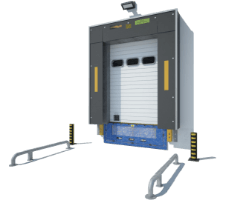Leaving the nest can be both exciting and nerve-wracking, especially when it comes to moving out for the first time on a budget. Whether you’re leaving home for college, starting a new job, or just looking for your own space, the thought of managing your finances and expenses can seem overwhelming. Check out some tips and tricks to help you make the most of your experience if you’re ready to take the leap and move out on a budget.
Make your first relocation experience a breeze by keeping your finances in order Moving Out for the First Time on a Budget Starts With Assessing the Finances
One of the most critical steps towards a successful relocation (besides booking professional cross-country moving services) is assessing your finances. Knowing exactly how much money you have, how much you need, and where your money is going will help you make informed decisions and avoid financial stress down the line. So, let’s take a closer look at how to assess your finances in the best possible way.
Determine Your Current Financial Situation
Before you can start making plans, be sure to calculate your income. Add up all the money you receive each month from your job, freelance work, or any other sources of income. After that, make a list of all your monthly expenses, including rent, utilities, groceries, transportation, entertainment, and any other bills or payments you have to make.
Don’t forget to take a look at any debts you have, such as student loans or credit card balances, and figure out how much you’re paying each month in interest and principal. Determine how much money you have in savings and how much you can realistically put aside each month for future expenses or emergencies. Remember that relocating can come with unexpected expenses, so it’s always a good idea to have a cushion of savings to fall back on.
Set a Realistic Moving Budget
Once you have a clear understanding of your current financial situation, it’s time to set a realistic relocation budget. It should include all the expenses like hiring professional cross-country movers, relocation supplies, utilities and services, and renting and security deposit.
Keep in mind that unexpected expenses can and likely will arise, so it’s always a good idea to leave some wiggle room in your budget. By setting a realistic budget and sticking to it, you’ll be able to manage your finances better and avoid unnecessary stress during the move.
Identify Ways to Cut Expenses in Preparation for the Move
Preparing for a relocation can be expensive, but there are several ways to cut expenses and save money. Here are some relocation tips to help you do this:
- Find free packing materials – Check online marketplaces or local stores for free cardboard boxes and other packing materials. You can also use items you already have, such as suitcases, to pack your belongings.
- Compare relocation costs – If you’re planning to hire professional movers, be sure to compare costs and services from different companies to find the best deal.
- Plan your meals – Eating out can add up quickly, so plan your meals in advance and buy groceries accordingly. You can also save money by cooking in bulk and freezing meals for later.
- Reduce utility bills – Make a plan to reduce your utility bills by turning off appliances and lights when not in use, adjusting the thermostat to conserve energy, and using energy-efficient bulbs.
By being strategic and creative, you can significantly cut down on expenses and save money during the preparation for your relocation.
To save up, consider in-home dining instead of eating out If Moving Out on Your Own for the First Time on a Budget, Find Affordable Housing First
Finding affordable housing is one of the biggest challenges when relocating, especially if you’re on a tight budget. While it’s easy to get caught up in the excitement of relocating to a new place, it’s important to be practical and consider your financial limitations. Do the following steps and find an affordable way to live in a new place.
Research Affordable Cities and Neighborhoods
When you’re on a tight budget and looking for affordable housing, it’s important to research cities and neighborhoods where the cost of living is lower. To find a good neighborhood, you can simply use some online tools such as Numbeo and NerdWallet.
Neighborhoods that are up-and-coming but not yet gentrified can be more affordable than established neighborhoods. Also, consider relocating to the suburbs, but be sure to research the transportation options available to ensure you won’t be spending too much on commuting.
Choose a Roommate to Split Expenses
Living with a roommate is a great way to split expenses and reduce the cost of living. However, when choosing a roommate online, consider your lifestyle and habits. Look for someone who shares similar values, schedules, and routines as you to avoid potential conflicts.
Before moving in together, discuss how you plan to split expenses such as rent, utilities, and groceries. Ask all the needed questions, set up a budget, and make sure you both understand the expectations. Establish boundaries and expectations for living together, such as cleaning responsibilities, noise levels, and guests.
Consider Different Types of Housing
While owning and renting a place can be expensive, there are still a few different living arrangements that would suit your needs and budget. Here are some types of housing to consider:
- Shared housing – This includes options like renting a room in a shared apartment or house with other people. This can be a more affordable option as you can split rent and utilities.
- Studio or efficiency apartments – These apartments are smaller in size and often have a lower rent cost than larger apartments or houses.
- Tiny houses – Tiny houses are small, often portable, and can be an affordable option for those who don’t need a lot of space or have some unique storage ideas.
- Micro-units – Micro-units are small studio apartments with a compact layout designed to maximize space. They often have lower rent costs than larger apartments.
- Manufactured homes – Manufactured homes, or mobile homes, can be an affordable option for those who want their own space but don’t want to pay for traditional housing.
- Co-living spaces – These are shared living spaces with private bedrooms and shared common areas. They can be a more affordable option than traditional apartments.
Make a Strategy to Easily Reduce Relocation Costs
Efficient relocation calls for some strategies. This means you can save money without sacrificing quality or convenience. Firstly, try to avoid last-minute relocations because then you definitely won’t be able to pack your belongings, but you’ll have to book additional packing services. But don’t despair – even if you don’t have enough time to do it yourself, our Cross Country Moving Company will take the utmost care of your fragile objects and everything else you want to bring.
Take every advice on cutting expenses when relocating across the country Purge Unnecessary Belongings
Take a closer look at your belongings when moving cross country and purge any items you no longer need or use. Downsizing for a move will surely help your savings, and you can even earn some money. Sell unwanted items online, at a garage sale, or through a consignment store to make some extra cash.
On the other hand, you can donate items in good condition to a local charity or nonprofit organization like Goodwill. Whatever you choose to do with the unwanted stuff, it will be a great opportunity to start fresh and simplify your life as you relocate on your own for the first time.
Pick the Right Time of the Year to Move
Choosing the right time of the year to relocate can help you save money and reduce stress. The summer months, particularly June through August, are considered peak seasons when prices tend to be higher due to high demand. If possible, try to move during the off-season to save money. So, consider relocating during the off-season, such as in the winter or early spring, which can be a less expensive time of the year for relocating.
Choose the off-season and relocate more affordably Hire a Long-Distance Moving Company in Advance
If you’re planning a relocation, booking professional relocation services in advance can help you avoid last-minute stress and expenses. Relocation teams often book up quickly, especially during peak season, so it’s important to start researching and booking as early as possible.
When hiring long-distance movers, be sure to compare prices and services from different companies, read reviews, and check for licenses and insurance. A reputable crew will provide you with a detailed estimate of the cost and a timeline for delivery.
Use More Than One Cross Country Moving Service and Save Up
Many relocation companies offer discounts if you take more long-distance moving services. For example, if you hire a relocation company to handle both wrapping and transporting your belongings, you may be able to negotiate a discounted package deal. Also, don’t forget that many relocation teams offer car shipping services.
It’s always a good idea to ask cross-country movers about any available discounts or promotions when you’re obtaining quotes for your move. By taking advantage of available discounts and package deals, you can save money and make your relocation more affordable.
Check with the relocation crew about their discounts Make a List to Keep You on Track When Moving Out on Your Own for the First Time on a Budget
Staying organized and keeping track of your expenses is essential, no matter if you have limited finances or not. But, if you do have a limited budget, be sure to include the following things in your first-time relocating list to help you stay on track with your budget:
- Rent and security deposit – Make sure to budget for the cost of rent and the security deposit required by most landlords.
- Utilities and services – Don’t forget to factor in the cost of utilities such as electricity, gas, water, and internet.
- Furniture and household items – If you need to purchase furniture or household items for your new place, budget for these expenses.
- Groceries and household supplies – Include the cost of groceries and household supplies, such as cleaning products and toiletries, in your budget.
- Transportation costs – Budget for transportation costs such as gas or public transportation.
- Emergency fund – Set aside some money in your budget for unexpected expenses or emergencies.
Stay on top of your budget and avoid overspending. Be sure to update your list as you make purchases or incur expenses, and adjust your budget as needed to ensure that you stay within your means.
A detailed list will help you avoid overspending Follow the Plan, and You’ll Relocate Without a Fuss
When you follow your budget and have help from one of the best cross-country moving companies, you can make your relocation more affordable and less stressful. Remember to prioritize your expenses, look for ways to save money, and be prepared for unexpected costs. With a positive attitude and a commitment to your budget, you can successfully move out on your own and start your new chapter with confidence.
With years of experience, Cross Country Moving Company can help you make your relocation a success. Contact us today to get a free quote and schedule your relocation on time.
FAQ About Moving Out for the First Time Budget
What Are Some Common Expenses to Consider When Moving Out for the First Time?
Moving out for the first time can be an exciting and liberating experience, but it can also be expensive. Some common expenses to consider include rent, security deposit, utilities, groceries, furniture, and household supplies. Additionally, you may need to budget for transportation, relocation costs, and insurance. It’s important to plan ahead and create a budget to ensure that you have enough money to cover these expenses.
How Can I Create a Moving Budget?
Start by researching the cost of living in your new location and calculating your expected rent and utilities. You can then add in the cost of relocation supplies, transportation, and insurance. Be sure to also budget for groceries, household supplies, and any new furniture or appliances you may need. Once you have a comprehensive list of expenses, determine how much you can afford to spend and adjust your budget accordingly.
What Are Some Tips for Finding Affordable Housing?
First, consider sharing an apartment with roommates to split the cost of rent and utilities. You can also look for apartments in less expensive neighborhoods or smaller towns outside of the city center. Additionally, consider negotiating with landlords for lower rent or move-in incentives.
How Can I Save Money on Utilities?
Saving money on utilities can help you stick to your budget. Some tips for reducing utility bills include using energy-efficient light bulbs, turning off lights and electronics when not in use, taking shorter showers, and washing clothes in cold water. You can also ask your utility company about budget billing or payment plans to help spread out the cost of your bills.
What Are Some Ways to Reduce the Cost of Moving?
Relocating can be expensive, but there are several ways to reduce the cost of moves. One option is to do the boxing-up process yourself, or at least a part of it. You can also save money by borrowing or renting wrapping materials, such as boxes and dollies, instead of buying them. Additionally, consider selling or donating unwanted items before the move to reduce the amount of stuff you need to transport.
How Can I Furnish My New Home on a Budget?
Furnishing a new home on a budget can be challenging, but there are several ways to save money. Consider shopping at thrift stores or consignment shops for furniture and decor. You can also look for deals online or at discount stores. Another option is to ask friends and family for any unused furniture or household items they may be willing to donate or sell.
What Are Some Tips for Cooking and Eating on a Budget?
Cooking and eating on a budget can be done with some planning and creativity. Start by making a grocery list and sticking to it to avoid impulse purchases. Consider buying generic brands or purchasing in bulk to save money. You can also plan your meals ahead of time and cook in batches to reduce waste and save time.
How Can I Stay on Track With My Budget?
Staying on track with your budget requires discipline and commitment. Start by tracking your spending and adjusting your budget as needed. Consider using a budgeting app or spreadsheet to help you stay organized. You can also set financial goals for yourself and reward yourself when you reach them. Finally, avoid impulse purchases and stay focused on your long-term financial goals.
What Are Some Common Mistakes to Avoid When Moving Out for the First Time on a Budget?
Failing to create a budget before starting the relocation is one of the biggest relocation mistakes you could make. Without a budget, it’s easy to overspend on things like furniture, rent, and utilities. Another mistake is not researching the costs associated with relocating. This can include things like storage fees and security deposits.
What Resources Are Available to Help First-Time Movers on a Budget?
Online resources for budgeting and checklists for relocating to another state can help first-time movers stay organized and on track. Another resource is local community organizations that support individuals and families in need. These organizations may offer free or low-cost relocation assistance, including help with packing and storage.Don’t know how to deal with moving out for the first time on a budget? No problem! Our tips will help you navigate the process without breaking the bank.

















